It is understandable if you’re frustrated that your hair always gets greasy. Besides causing a buildup of unhealthy things on your scalp, greasy hair is an excellent attractor of dirt and germs. And because you probably carry one already, you can best describe how unhealthy it makes your hair look.
However, while this problem may weigh so heavy on your heart, knowing the root cause is crucial to finding an effective solution. If you are concerned about fixing this, then you need to understand what causes oily hair, as it is an important step towards achieving healthy, non-oily, and good-looking hair.
This article offers you an insight into what causes your hair to become greasy as well as possible effective solutions. You may want to grab a bottle of chilled juice and popcorn as we journey to uncover the reason behind this phenomenon.
5 Reasons Your Hair Gets Greasy So Fast
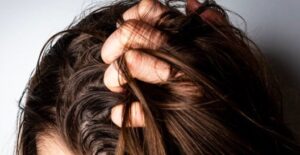
1. Frequent washing
If you are naturally prone to having greasy hair, you will most likely feel pressed to wash it often. But, is it bad to wash your hair? Not. The problem is that the more you wash with shampoos, the more you become addicted to doing so.
When you wash your hair too often, you systematically get rid of its natural oil. If this continues, it can cause your hair root to create more sebum (oil) to fill up the loss, resulting in excessive greasiness. That is why you need to figure out a hair wash routine that matches your hair type.
2. Hair type
Your hair type can also determine whether it will be greasy. For instance, if your hair is thin, its roots may get oily easily. Thin hair strands can’t absorb much oil, which builds up on the hair surface and makes it greasy.
Similarly, for people with straight hair, it is easy for oils to slide down their shaft faster. Since there is a bit of contact with the roots where the oil glands are secreted, the greasiness is also present.
3. Hormonal Imbalance
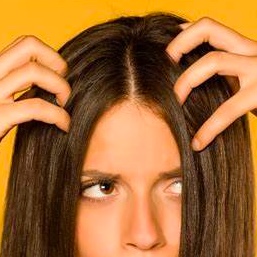 Sebum is a natural hair oil that is produced by the scalp to keep it lubricated. However, too much of it can bring about greasiness. Hormonal changes sometimes affect the amount of sebum produced by the scalp. Conditions like puberty, pregnancy, the monthly period, and stress can affect your hormones. During these conditions, it is possible to notice your hair getting oilier than usual.
Sebum is a natural hair oil that is produced by the scalp to keep it lubricated. However, too much of it can bring about greasiness. Hormonal changes sometimes affect the amount of sebum produced by the scalp. Conditions like puberty, pregnancy, the monthly period, and stress can affect your hormones. During these conditions, it is possible to notice your hair getting oilier than usual.
Additionally, genes can also dictate how much sebum the scalp produces. If there is a family member who faces the same problem, you likely got it from that person.
4. Oily Hair Care Products
One cause of greasy hair is excessive use of hair care products. When you use too many products, like hair masks, conditioners, and other hair foods, fine or thin hair sometimes has that oily look. The best thing is to use only light products and apply them in the right way and proportion, which may help lessen the problem.
Also, styling products like gels, hair waxes, and pomades often contain heavy grease content that can make your hair oily even after they are washed off. To remedy this, take your mind off oily styling products, and even if you are to use them at all, they should be in minute quantity.
5. Poor Diet
It’s no joke that we are what we eat. Apart from the face, one part of the body that can quickly tell an observer if we’re feeding well is our hair. If you consume dairy products or refined carbohydrates, they may be the reason your hair gets greasy so fast. That’s because they increase your body’s capacity to secrete more sebum – many of which you may not need.
7 Home Remedies For Greasy Hair
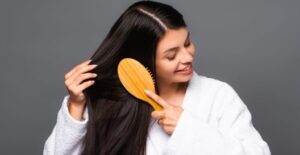
1. Change your hair routine
One lesson you will learn as you proceed with your beauty regimen is how to observe well. Keen observation will help you find out what triggered the condition you’re dealing with so you can find a solution that works. If you’ve never experienced excessive hair greasiness before until you tried a new product or regimen, you know where to search for solutions.
For example, if you just changed your hair routine lately and it starts to get greasy as the days go by, then you have a hint. Since every human body reacts to things differently, the new hair care products may be the root cause. Changing it might be the solution.
2. Apple cider vinegar
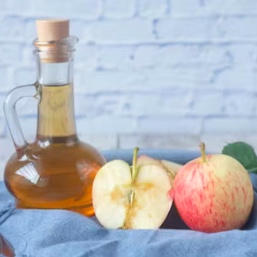 Apple cider vinegar, when applied periodically, can help reduce the scalp’s pH level and oily buildup. It functions as a dirt and oil removal agent. To use ACV, you need to mix it with water in an equal amount and then apply it to the scalp.
Apple cider vinegar, when applied periodically, can help reduce the scalp’s pH level and oily buildup. It functions as a dirt and oil removal agent. To use ACV, you need to mix it with water in an equal amount and then apply it to the scalp.
After use, shampoo your hair and allow it to sit for some time, possibly minutes, before washing it off with clean water. For an effective result, use it about 1–2 times a week.
3. Dry shampoo
Shampoos, specifically dry ones, can freshen up your hair immediately after application. It soaks up excessive oil without adding water. If you want a quicker remedy, dry shampoo can help. Plus, it saves you time, the effect remains for a long period, and there is no need to wash your hair too often with it.
To apply, spray the shampoo on the roots and leave it for a few minutes. After, comb your hair to remove even the smallest bit that remains.
4. Aloe Vera
 Aloe vera has natural elements that can help reduce inflammation and even eliminate bacteria. Because of this, it is an effective remedy for oily hair. It can help deep clean, manage sebum, and reduce irritation of the scalp.
Aloe vera has natural elements that can help reduce inflammation and even eliminate bacteria. Because of this, it is an effective remedy for oily hair. It can help deep clean, manage sebum, and reduce irritation of the scalp.
To use aloe vera, mix it with water in equal proportions and apply it to your scalp. Allow it to be for like 10 to 20 minutes before you wash off and wash your hair as you normally do.
Several studies have proven that aloe vera is useful for oily hair; however, more research is needed to confirm how properly it can resolve greasy hair problems.
5. Oil-Absorbing Sheets
An ingenious way to address your always-greasy hair is to use an oil-absorbing sheet to reduce the quantity of grease on the hair. Admittedly, these sheets are primarily designed to reduce facial oil by absorbing it, but many people have reported that they work for hair, too.
If you think your hair greasiness may be genetic, here is a palliative measure you can take to address it. Focus mainly on areas where you think are the oiliest, particularly your hairline.
6. Use Essential Oils
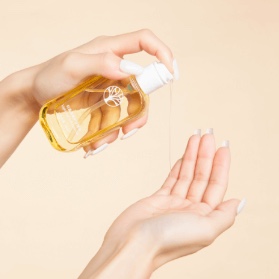 It may sound counterproductive to recommend oil to solve the problem of excessive oil. But it’s proven that essential oils like the Tea Tree and Lemon Oils effectively regulate your sebaceous gland. In other words, either of these two oils can slow down the amount of sebum produced by your scalp. Tea tree oil is particularly useful for its antimicrobial properties that ensure you aren’t infected or your scalp getting inflamed.
It may sound counterproductive to recommend oil to solve the problem of excessive oil. But it’s proven that essential oils like the Tea Tree and Lemon Oils effectively regulate your sebaceous gland. In other words, either of these two oils can slow down the amount of sebum produced by your scalp. Tea tree oil is particularly useful for its antimicrobial properties that ensure you aren’t infected or your scalp getting inflamed.
Whichever of these two oils you choose, use them in moderation and avoid exposing your scalp to the sun immediately after using them. Also, because of their nature, you may find out that they work best with carrier oils like coconut oil. Simply mix both in equal proportion and massage it gently into your scalp. The recommended use is twice a week.
7. Wash With Rice Water
Why overwash your hair with shampoos when you can use rice water as often as you wish without standing any risks? Yes, that starchy water you get after soaking or cooking rice is of tremendous benefit to the hair. It makes it shiny and smooth. It also works more like an antidote for skin irritation that occurs from using sodium-lady skincare products. Many findings also suggest that this simple homemade product is rich in minerals, amino acids, vitamins, and other products beneficial for the hair.
Bottom line
While you may dislike the fact that your hair gets greasy quickly, please note that it isn’t a malady. It’s like having an oily face; you don’t become panicky because of that, do you? Yes, seeking a solution is in order, but as advised in this article, first find out why you think you’ve got greasy hair in the first place.
In your inquiry, you may discover that the trait is genetic. In this case, your solution may only be palliative as you cannot reverse your genetic makeup. However, if it is self-inflicted by the reason of your lifestyle choices, you can adequately go for the change that will cause it to stop.
Finally, it’s not a bad idea to consult a dermatologist if you think your greasy hair may be caused by something more than the ordinary. We recommend that before settling for a remedy, speak with a doctor, if you can, for a tailored solution.

 By myulikeadmin
By myulikeadmin



